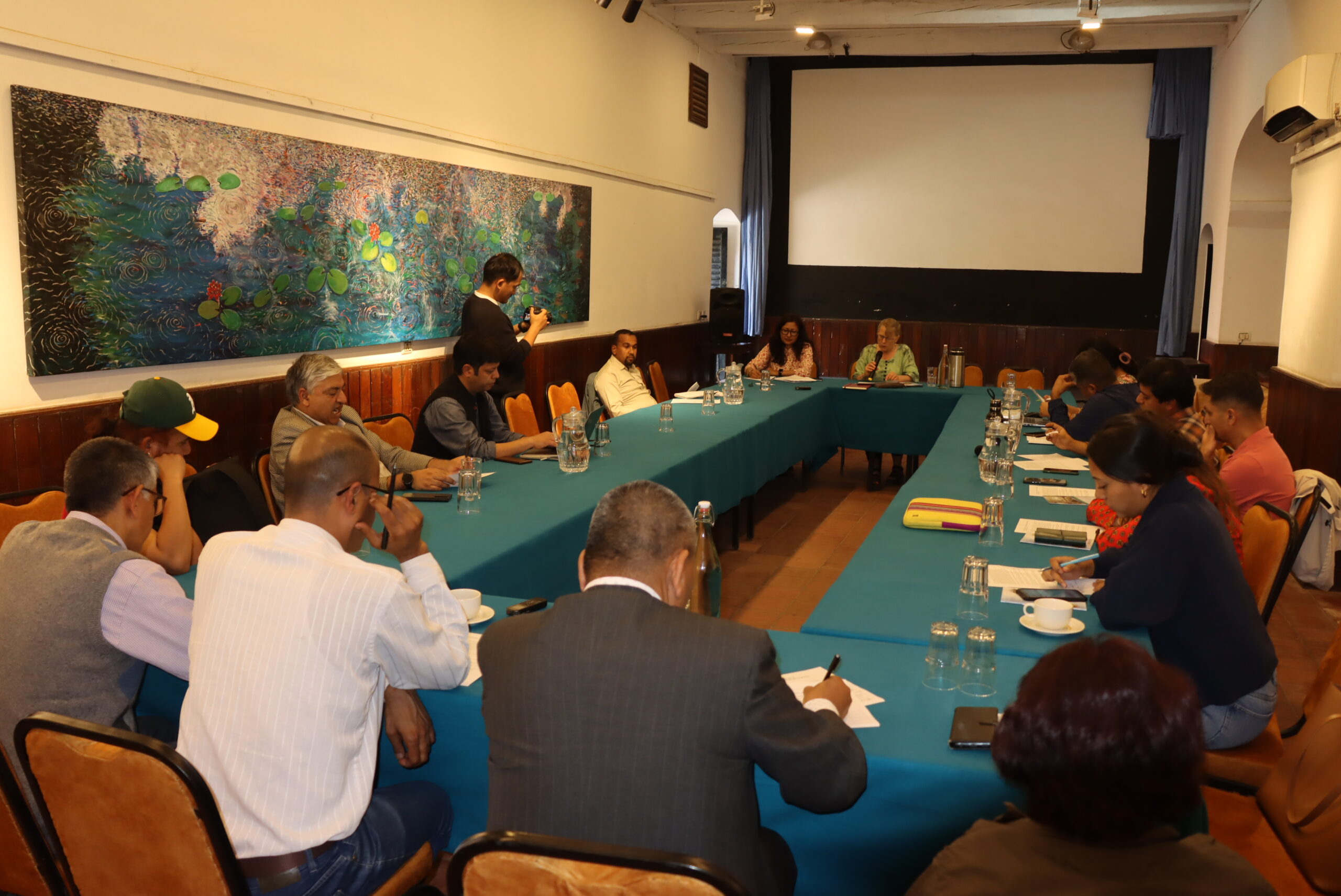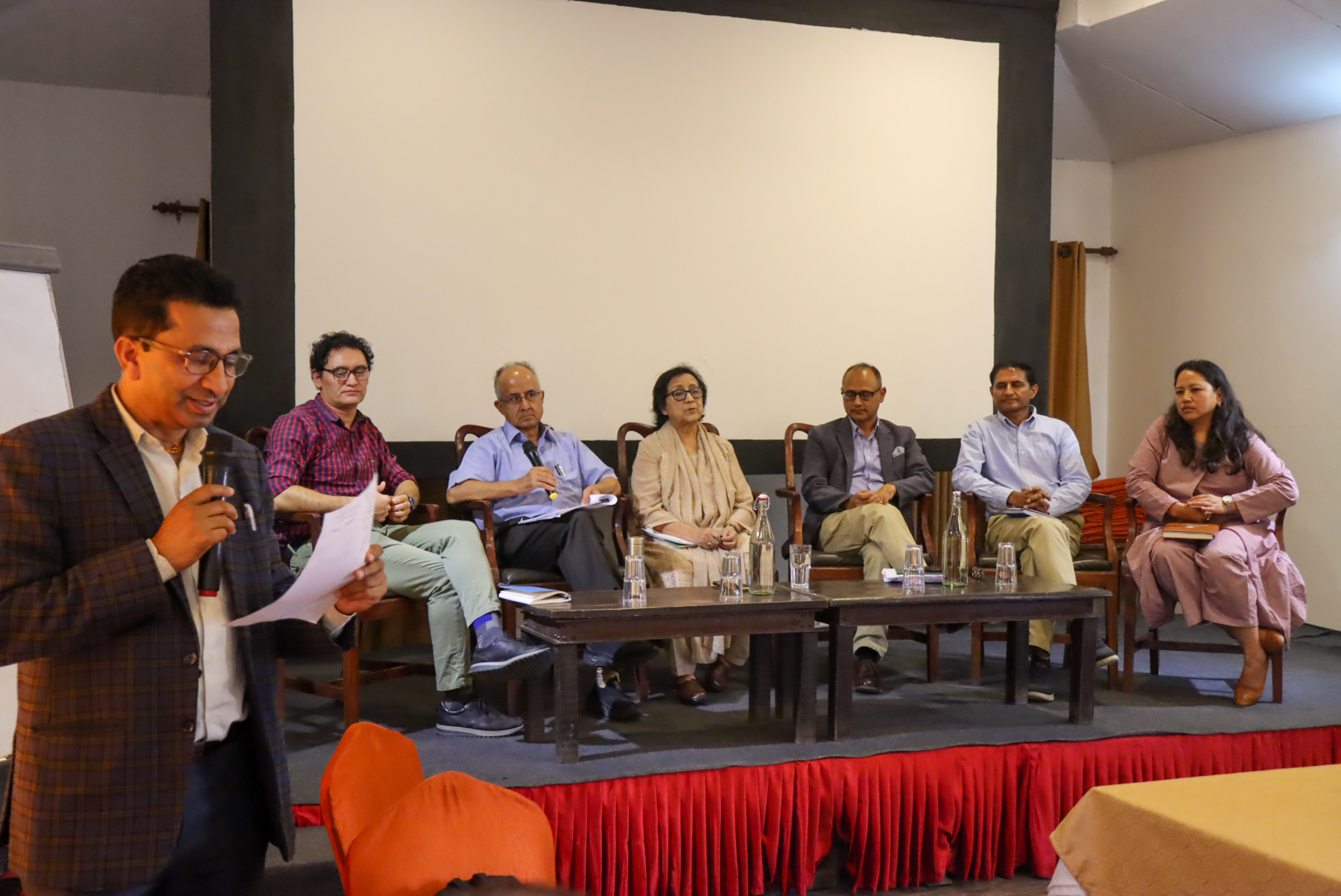On 28 March 2025, the Southasia Institute of Advanced Studies (SIAS) hosted an insightful Future Himalayan Research Seminar titled “Violence in Conservation Enforcement: A Global Comparative Study and a Research Agenda” presented by Dr. Nathan J. Cook, Assistant Professor in the Paul H. O’Neill School of Public and Environmental Affairs (formerly “SPEA”) at Indiana University, Indianapolis.
Dr. Cook delivered his presentation by revolving around three themes: first with the introduction of his research objective: creating a global database of violent events associated with environmental enforcement by categorizing it into two forms— one-way violence, carried out by enforcement officials and two-way violence, carried out by local communities towards the enforcement officials. He continued with the concept and growth of militarized conservation in response to the poaching crisis in Sub-Saharan Africa. In this case, the enforcement officials use advanced military equipment for conservation approaches, switching to armed interventions that causes further violence. Second, he introduced one of the prime data sources to document the ongoing violences around the world, particularly the ACLED (Armed Conflict Location and Event Data Project), a non-profit website that collects conflict events from around the world. For his research particularly, he screens ACLED for micro data and events for potential relevance to conservation policy, wildlife and anti-poaching, areas of forestry, fishing, protected area management, tortures involved, environment, resource use, environmental enforcement/ management from 2018 onwards to 2023. He also briefed other supplementary sources such as Global Environmental Crime Tracker (EIA), IRPA Human Rights Violations Database and Ranger Honour Roll.
The second theme of the presentation focused on the preliminary results of his research, on temporal and spatial trends in violent events, comparisons across sectors, and the frequency of ‘extreme’ forms of violence such as torture. With 211 events (43% involving fatalities, 64% on and to enforcement officials and 27% related to wildlife), his results also showed that violent environmental enforcement events are widespread but a small number of countries account for larger number of events (India-39 events, Uganda- 32 events, Democratic Republic of Congo-27 events, Tanzania- 16 events and Kenya-14 events). However, these events, as Dr. Cook emphasized, underestimates several events with under-counting, unreported/ missing information and gaps and is getting even worse.
The third theme discussed how the new data can be used to shed light on conservation policy in the coming years. He discussed what country-levels, temporal and sub-national variables cause variations in violence and suggested that further exploration on the roles of donors/ foreign actors is required. He also questioned how the data sources should be leveraged to alleviate under-reporting and interpret under- reported data appropriately.
By the end of the presentation, Dr. Cook and the participants discussed on the present gaps in the available data sources, for instance, there being little to no qualitative cases but shed light with possibilities to focus on specific cases to target reserves to design it. Similarly, they also discussed whether or not there were any relation with the political violence in general (armed conflict or authoritative regime) with there being no hypothesis at the moment. Further discussions were based on the reliability of the data sources like ACLED were done to which Dr. Cook addressed it to having inter-coded reliability with high remarks. The participants also shared the unforeseen experiences of Nepal caused due to environmental enforcement and violence.




